The FIFA Club World Cup 2025, in its revamped format, has delivered a compelling narrative as it progresses towards the Round of 16. The competition boasts an expanded roster of participating teams, a redesigned trophy, a greater number of host cities, and the innovative addition of referee cameras, bringing it closer in scale to the prestigious quadrennial World Cup.
Organizers have lauded the event as "a celebration of hope, excellence and pride," embodying the collective aspirations of clubs, players, and fans. With numerous debutants and the tournament now spanning a full month, its significance has undeniably grown.
Featuring representatives from all six confederations – 12 teams from Europe, 6 from South America, 4 each from Africa, Asia, and North/Central America and the Caribbean, 1 from Oceania, and 1 from the host nation – the 2025 edition has been marked by unexpected results, classic underdog stories, and moments of intense rivalry.

Auckland City, ranked a distant 4,971st in the Opta Power Rankings, entered the Club World Cup as the lowest-ranked team. Drawn into a group with powerhouses like Bayern Munich, Benfica, and Boca Juniors, their chances appeared slim. The team, composed of amateur players from New Zealand's Northern League, faced a daunting challenge.
Their tournament began with a harsh 0-10 defeat against Bayern Munich, the largest margin of victory in the competition thus far, followed by a 0-6 loss to Benfica.
Facing Argentinian giants Boca Juniors in their final match, Auckland City defied expectations. Despite a massive difference of 4,819 ranking points and Boca's storied history, the amateurs secured a 1-1 draw, denying Boca Juniors a place in the Round of 16. This result was a monumental achievement for the New Zealand side.
Lionel Messi's Inter Miami defied expectations by advancing to the Round of 16 from a group that included Porto, Al Ahly, and Palmeiras.
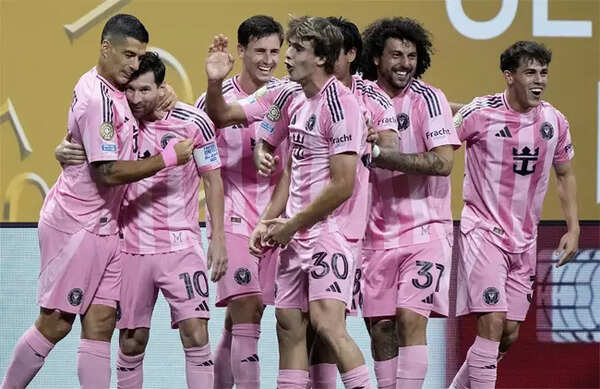
Led by Lionel Messi, and supported by Luis Suarez, Jordi Alba, and Sergio Busquets, Inter Miami secured a crucial 2-1 victory against Porto, highlighted by a stunning free kick from Messi. A 2-2 draw against Palmeiras sealed their place in the knockout stage.
The final matchday in Group E saw tensions escalate between River Plate and Inter Milan, with players nearly coming to blows after the final whistle. The animosity between River's Marcos Acuna and Inter's Denzel Dumfries stemmed from their countries' quarter-final match at the 2022 World Cup.
Extreme heat also posed a significant challenge, with teams employing ice baths and cold towels to cool down their players. Borussia Dortmund even had their substitutes watch their match against Mamelodi Sundowns from the locker room to shield them from the heat. Thunderstorms caused delays in several games.
The presence of US Immigration and Customs Enforcement (ICE) and Customs and Border Protection (CBP) marked a first for the tournament, requiring non-citizens to provide proof of legal status to attend matches.
With the 2026 FIFA World Cup, co-hosted by the United States, Mexico, and Canada, less than a year away, the Club World Cup has highlighted potential challenges. Issues such as pitch quality and extreme weather conditions have raised concerns about the upcoming tournament.
Real Madrid's Jude Bellingham criticized the poor pitch conditions, stating, "The pitches aren’t great here. The pitches aren’t great at all."
Despite the upsets and underdog stories, the FIFA Club World Cup remains a stage for Europe's elite teams. Powerhouses like Real Madrid and Manchester City are still considered strong contenders for the title. However, several teams, including Seattle Sounders, Urawa Reds, Ulsan, Wydad AC, and Pachuca, were eliminated without earning a single point.
Here's a list of teams qualified for the Round of 16:
Newer articles
Older articles
 Rishabh Pant: Greg Chappell Hails India Star as Cricket Game-Changer
Rishabh Pant: Greg Chappell Hails India Star as Cricket Game-Changer
 Gavaskar Calls for Kuldeep Yadav Inclusion in Second Test Amid Bumrah Fitness Concerns, Cites Birmingham Pitch Advantage
Gavaskar Calls for Kuldeep Yadav Inclusion in Second Test Amid Bumrah Fitness Concerns, Cites Birmingham Pitch Advantage
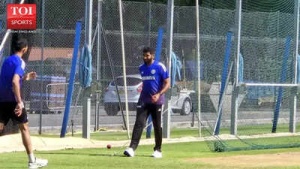 Bumrah's Birmingham Bowling Blitz: Accuracy, Angle Variation Headline Intense Net Session as Kuldeep Sharpens Skills
Bumrah's Birmingham Bowling Blitz: Accuracy, Angle Variation Headline Intense Net Session as Kuldeep Sharpens Skills
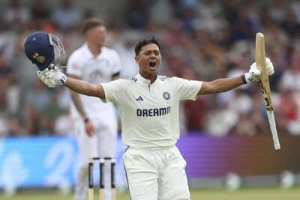 Jaiswal Aims to Shatter Gavaskar's 49-Year Record in Edgbaston Test
Jaiswal Aims to Shatter Gavaskar's 49-Year Record in Edgbaston Test
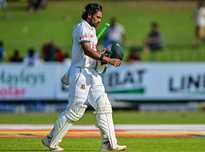 Bangladesh Test Captain Najmul Hossain Shanto Resigns After Sri Lanka Defeat
Bangladesh Test Captain Najmul Hossain Shanto Resigns After Sri Lanka Defeat
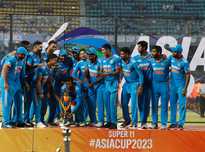 Asia Cup 2025: ACC Aims for September Start as Optimism Surges Amid Geopolitical Shifts
Asia Cup 2025: ACC Aims for September Start as Optimism Surges Amid Geopolitical Shifts
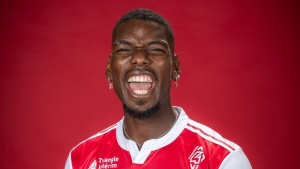 Pogba Resumes Career, Signs with AS Monaco After Doping Suspension
Pogba Resumes Career, Signs with AS Monaco After Doping Suspension
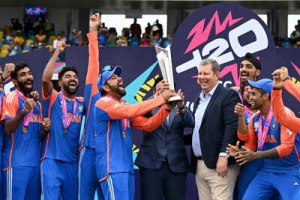 Rohit Sharma Reflects on India's T20 World Cup Triumph, Hails Barbados as "Lucky Ground"
Rohit Sharma Reflects on India's T20 World Cup Triumph, Hails Barbados as "Lucky Ground"
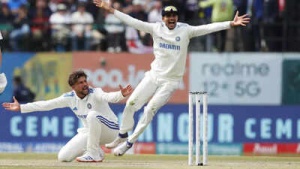 Edgbaston Test Preview: Experts Call for Kuldeep Yadav's Inclusion as India Seeks Series Leveler Against England
Edgbaston Test Preview: Experts Call for Kuldeep Yadav's Inclusion as India Seeks Series Leveler Against England
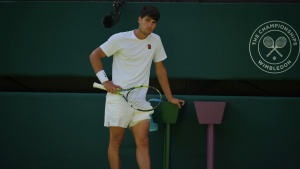 Alcaraz Concedes to Wimbledon Nerves After Five-Set Opening Round Battle
Alcaraz Concedes to Wimbledon Nerves After Five-Set Opening Round Battle